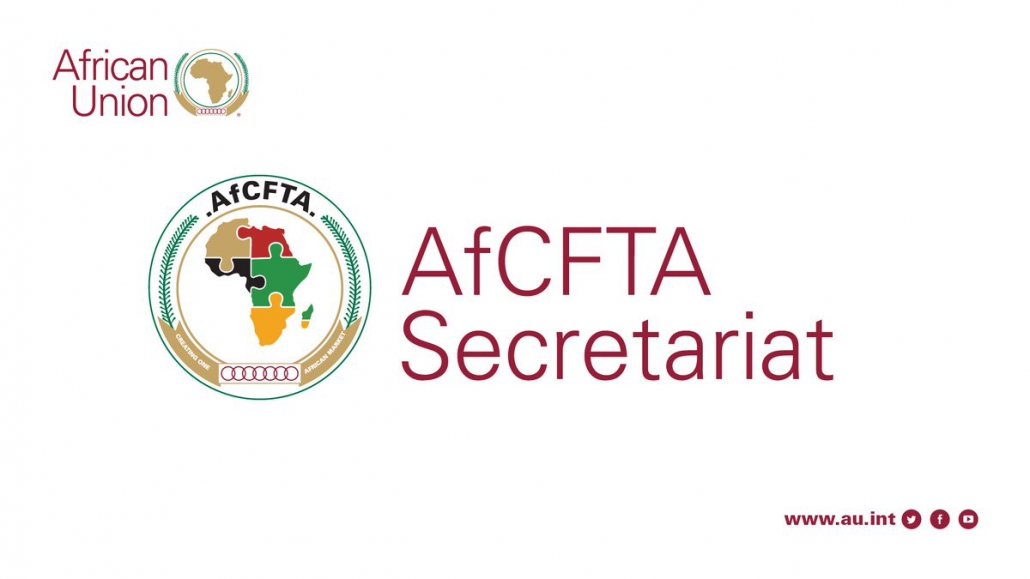Electrifying Intra Africa Trade for Structural Liberation - ENA English
Electrifying Intra Africa Trade for Structural Liberation

By Samiya Mohammed
The thunderclap of Trump’s Liberation Day tariffs has a tempest across Africa’s economic landscape. With rates soaring to 50% for Lesotho’s textiles, 47% for Madagascar’s vanilla, and 30% for South Africa’s autos, the policies crystallize a brutality of nations nurtured by AGOA’s duty-free access now face commercial exile from their largest Northern market. Within this turbulence lies a galvanizing truth: Africa’s survival hinges not on pleading for Western leniency but on accelerating its continental trade renaissance. The African Continental Free Trade Area (AfFTA) emerges as a spearhead for structural sovereignty.
Trump’s tariff architecture, basing rates on bilateral trade deficits divided by imports, betrays a grotesque illogic. Lesotho is among the most severely impacted countries in Africa. The country exports approximately 200 million USD in textiles to the United States, while importing only 3 million USD in return. With the introduction of the new reciprocal tariff system, Lesotho is confronted with tariffs as high as 50 percent on its exported goods.
Ghana and Côte d’Ivoire are also encountering significant difficulties. Ghana has been subjected to a 10 percent tariff, whereas Côte d’Ivoire, recognized as an agricultural powerhouse exporting nearly 1 billion USD in cocoa to the United States, has faced a 21 percent duty. This mathematical cruelty ignores why deficits exist.
Africa exports raw minerals exempt from tariffs, but faces punitive rates on value-added goods like apparel or processed cocoa, the very industries AGOA sought to nurture. Landlocked states like Botswana rely on South African ports. Tariffs on South Africa thus cascade regionally, fracturing supply chains like brittle glass.
This challenge has escalated even though negotiations are currently taking place with the Trump administration. The World Trade Organization (WTO), which was created to promote a rules-based global trading system, appears to be concerned about this crisis. Its dispute resolution mechanism, which is fundamental to its effectiveness, is essentially weakened, obstructing its capacity to tackle trade disparities and protect the interests of member countries. This immobilization carries significant consequences for the global economy, potentially resulting in heightened trade tensions, retaliatory actions, and a deterioration of the core principles of international trade agreements. However, the organization is optimist about Africa.
When Ngozi Okonjo-Iweala, the Director-General of the WTO, spoke at the opening plenary session of the 4th Finance for Development Conference in Seville this year, she remarked that developing nations, which had anticipated boosting export revenues to avert a decline in their balance of payments, are now faced with a disruption so significant that it contributes to financial instability. “This is why we have argued that least developed countries as a group, and Africa as a region, should be exempted from these reciprocal tariffs, so we can better integrate them into the world trading system, not further exclude them, so that they can stand a better chance to earn the resources with which to deliver on the Sustainable Development Goals.”
The call made by the head of the WTO is significant, as it may assist nations on the continent in negotiating according to the principle of reciprocity, grounded in the national interests of each country. However, Africans possess a wealth of opportunities within their own borders. These opportunities could potentially elevate the continent to a prominent position on the global political and economic stage, providing substantial leverage. Engaging in trade among themselves is crucial to alleviating the impending threat of the current global trade war.
While appealing to Washington to consider exemptions for the poorest nations, Okonjo-Iweala said the continent must not wait for outside leniency. She said the message is simply that Africa must become more self-reliant. To achieve that, she emphasized the urgent need to mobilize domestic resources, streamline regulatory bottlenecks, and, above all, deepen intra-African trade, which currently accounts for only 16 percent to 20 percent of the continent’s commerce.
Here is the remedy. The African Continental Free Trade Area (AfCFTA) encompassing 54 nations over 1.3 billion people is no longer a bureaucratic dream but an urgent lifeline. The effective execution of this agreement is anticipated to enhance intra-African trade and generate opportunities for Africa to industrialize and increase its competitiveness in the global market. As global trade fragments, Africa’s internal market projected to hit $3.4 trillion by 2030 becomes the ultimate insulator.
Such synergies are latent. AfCFTA’s reduction of 90% intra-African tariffs makes them viable and urgent, as Chinese manufacturers, locked out of U.S. markets, may flood Africa with cheap goods, undercutting nascent industries.
Bilateral pleas have failed. Lesotho’s delegations secured only partial tariff reductions South Africa’s White House meeting yielded symbolism, not salvation. Unity is non-negotiable. As AU Chair João Lourenço could broker a grand bargain duty-free access for U.S. firms to Africa’s booming consumer markets in exchange for tariff relief on African apparel and agro-processing. Simultaneously, Africa’s critical minerals 92% of Botswana’s exports, 81% of DRC’s grant leverage. The U.S. needs cobalt for EVs and platinum for hydrogen Africa need not surrender it cheaply.
Trump’s tariffs are a searing indictment of global trade’s hypocrisy but also Africa’s historic fragmentation. The answer isn’t despair but defiance through integration. Implementation accelerants are critical. Pilot transactions between Kenya, Ghana, Egypt, and South Africa must scale from hundreds to millions of shipments.
Lesotho’s textile workers deserve subsidies for retraining or factory pivots to regional markets. China’s offer of duty-free access to 53 African nations, excluding, must be leveraged, but cautiously avoiding new dependency traps.
As Wamkele Mene, AfCFTA Secretary-General, declares, “No single market will survive alone. Our combined population is our power”. The tariff storm may rage, but within it, Africa plants the seeds of an irreversible economic emancipation. Let factories hum in Lagos for Addis consumers, let Congolese tech startups scale in Johannesburg hubs. When trade walls rise, continents that trade with themselves thrive. Africa’s moment is not coming; it is here, forged in the fire of unjust tariffs and seized by continental vision.